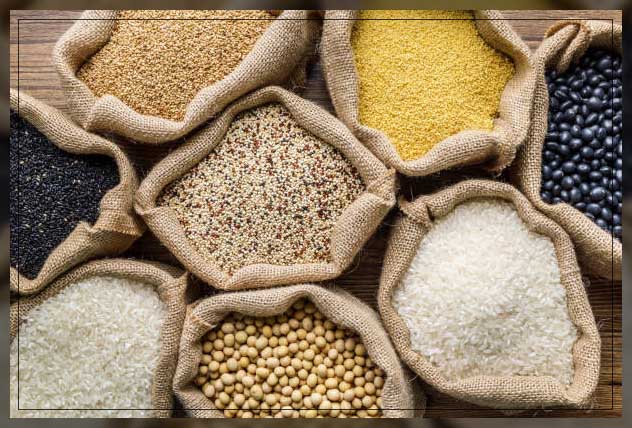HarvestPlus, an organisation that coordinates Nigeria’s staple crop biofortification programme, says biofortification is pivotal in addressing the country’s nutritional deficit.
Mr Arun Baral, the Chief Executive Officer of HarvestPlus, said this at the Biofortification Thought Leadership Series on Thursday in Lagos.
The News Agency of Nigeria (NAN) reports that biofortification is the process of increasing the density of micronutrients in widely consumed staple crops through conventional breeding techniques, agronomic practices and genetic modification.
Baral described biofortification as a good intervention that would help countries in Africa and Asia to improve the nutrition their people.
and to improve and transform their crop and food system.
“HarvestPlus was formed 20 years ago with the goal of addressing malnutrition through staple crops with higher levels of micronutrients.
“Two billion people suffer from malnutrition globally and three billion people cannot afford healthy diets.
“So, this is where biofortification comes in, and becomes the backbone of nutritional diets.
“Our approach now is to really start working on food system transformation. And we want to cut across the value-chain in a very catalytic manner,” Baral said.
On his part, HarvestPlus Nigeria Country Manager, Dr Yusuf Dollah, said biofortification makes crops fit for increased agro-yields.
“For a crop to be fit for agriculture, it means that the variety must have high yield, that variety must be able to withstand climate change challenges, and it must be able to also deliver nutrition.
“Research has shown that rising temperature due to climate change is depleting the nutrient content that we have in our existing seed varieties.
“If you access seed varieties of 20 years ago, in comparison with what we have today, they have more nutrients because of the rise in temperature.
“Hence it is high time for us to invest in nutritious crops.
“At HarvestPlus, we develop these varieties through conventional breeding, to ensure that our people in local communities have access to these varieties.
“They will now have access to essential micronutrients and vitamins recommended by the World Health Organisation such as iron, zinc and vitamin A,” Dollah said.
He also said that majority of these vitamins and micronutrients were lacking in diets of developing countries.
“The government both at the federal and the state levels need to pick up this technology and ensure that our people from local communities have access to this biofortified technology.
“That is why HarvestPlus is on the ground to provide technical support.
“We want the government to have biofortification in their policies so they can plan and also budget for it,” he said.
A farmer from Kaduna State, Mr Umar Musa, said that biofortification help to increase crop yields.
“I am here to represent all the farmers that have been able to adopt this biofortified seeds varieties.
“There are three basic reasons we adopted biofortified maize seeds. It is beneficial because it consumes less fertilisers compared to the conventional seed varieties.
“Secondly, it is high yield due its high market values in comparison with conventional seeds.
“Also, in terms of price value, the biofortified yellow maize has higher value than the regular white maize. It has a N5,000 profit margin above the white maize.
“The only challenge we have is that because of the taste of the biofortified maize, the farmers most times are at the mercy of thieves,” Musa said. (NAN)


